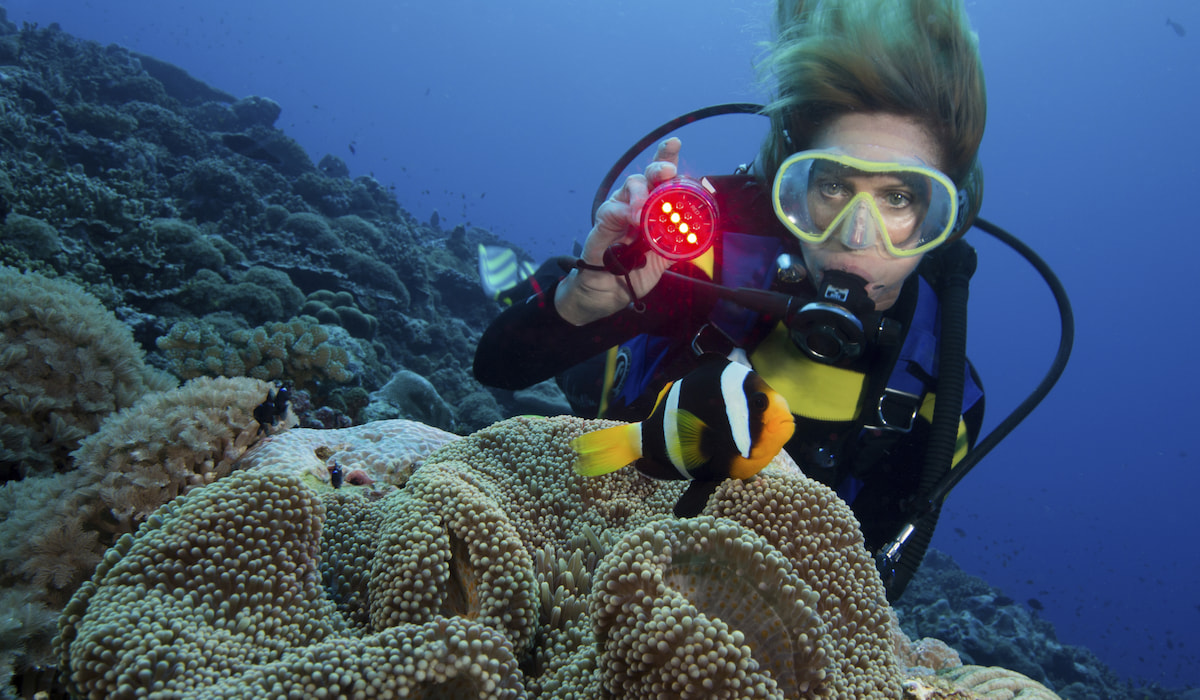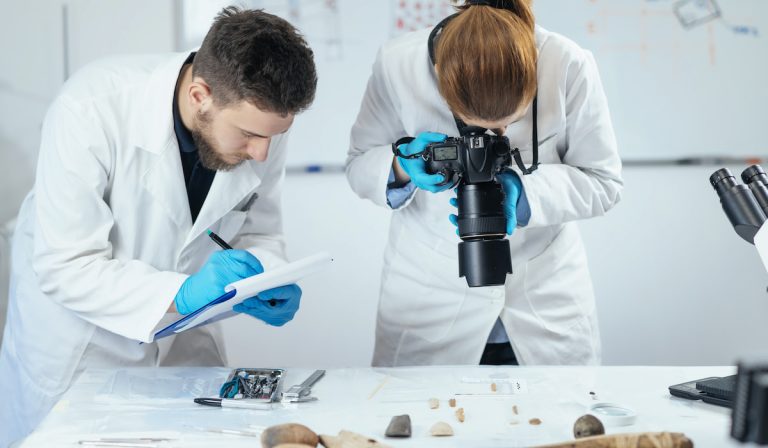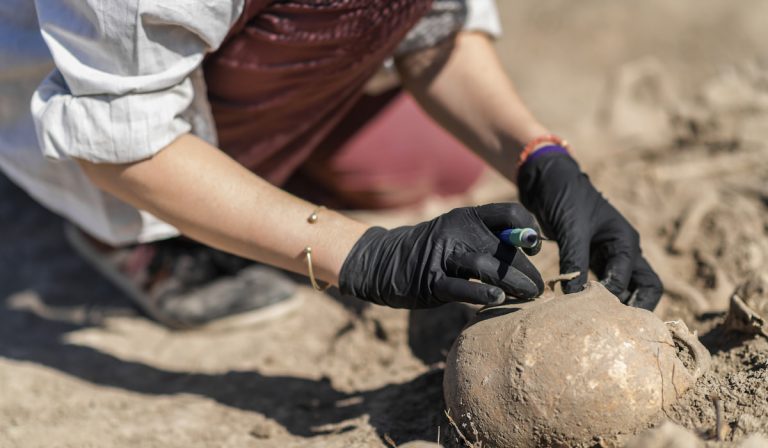Marine Archaeology Education Requirements
Archaeologists, in general, are highly trained individuals devoted to the study of the past, including human, plant, and animal histories. Unlike other history-based vocations, archaeologists seek to find physical evidence of history in the environments they specialize to work in. These environments can range from human-centered to old-growth forests and peat bogs to marine locations.
Above all, archaeology seeks to examine the records of the past that remain in and on the Earth to discover patterns and clues about how life has existed and evolved on the planet. However, to be an archaeologist requires a diverse set of skills, especially concerning the education and training for the job.

In this regard, marine archaeology is a sub-class of archaeology whose primary environment of exploration is underwater. These could be spots with either submerged ships or settlements and could either be in salt or freshwater environments.
Since you will need high-level expertise to work in the field, a minimum of a master’s degree in marine archaeology is required to work competitively. A doctorate is recommended for attaining higher salaried or teaching positions. Several years of education beyond a bachelor’s degree will be necessary, and only a handful of universities around the globe offer such programs. Acceptance into the programs can be very competitive.
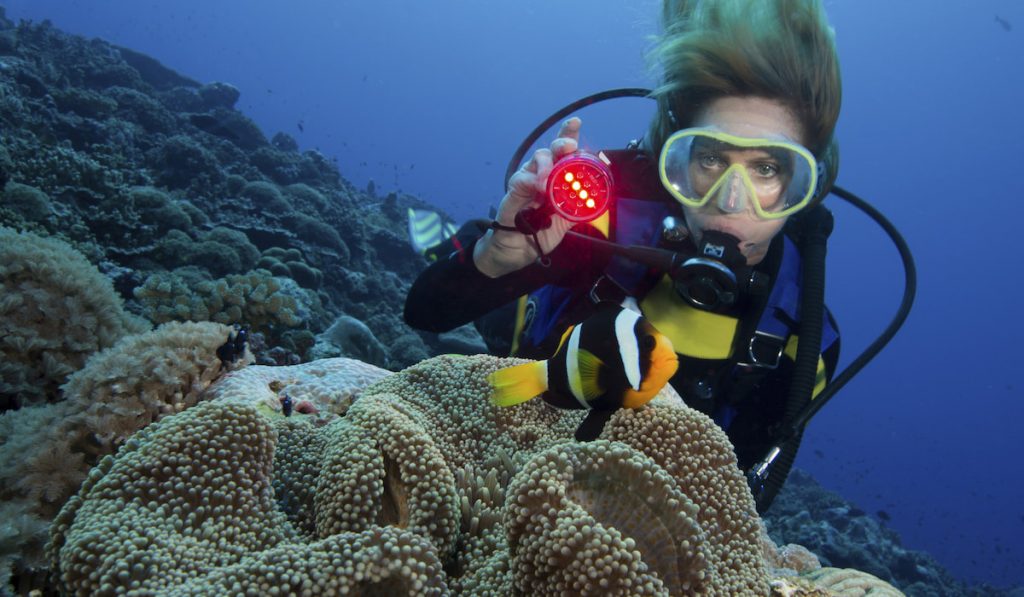
What Does a Marine Archaeologist Do?
Now that we know what an archaeologist does, a marine/maritime archaeologist is an archaeological expert who conducts their archaeology in water bodies. These could be rivers, estuaries, lakes, seas, and oceans.
As you may expect, a maritime archaeologist needs diverse skills to be out there in the field. Although they may use the same collection and analysis methods as the rest of the archaeological fraternity, marine archaeologists work in environments requiring advanced techniques and tools to safely navigate the environment they explore.
Remember, they need to be fully aware of their surroundings because they may be in a hostile environment with various sources of concern, such as predator animals like sharks, volcanoes, earthquakes, submarine landslides, and the risk of sudden water currents. For this set of risks, a marine archaeologist will need a rich skillset and proper training, the least of which includes scuba diving proficiency.
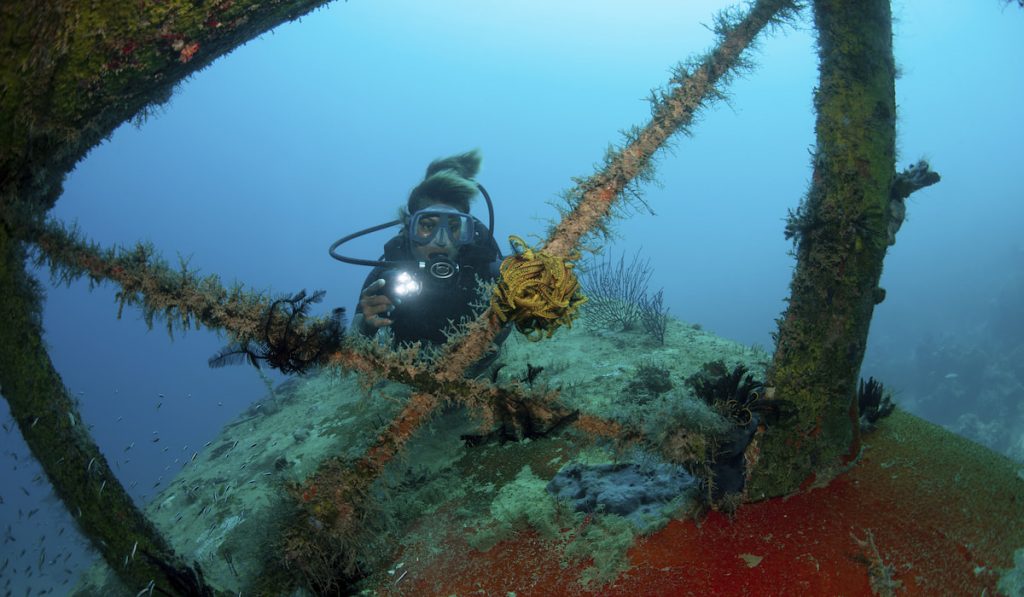
Duties of a Marine Archaeologist
As aforementioned, marine archaeologists use various tools to help them perform all their tasks in the aquatic environment. Examples of these tools may include acoustic, remote, and magnetic sensing equipment that allows them to pinpoint locations of buried sites and the infrared, optical, and acoustic equipment that helps them study and record fossils and decaying natural materials.
Besides handling and operating such equipment with advanced technology, maritime archaeologists also have additional duties, which include:
- Evaluating the possibilities of certain sites being historically rich with fossils.
- Planning and conducting research projects.
- Finding, handling, studying, analyzing, and recording waterlogged fossils.
- Navigating boats to possible archaeological site locations.
- Utilizing historical resources such as explorers’ accounts, ship logs, manifests, and even legal records to conduct their research.
- Writing detailed reports on fossils and recommendations.
- They present research findings to both the public and academic audiences, mainly in the form of speeches, articles, academic journals, and books.
Educational Requirements for Marine Archaeologists
Now that you understand what maritime archaeologists do together with their duties and responsibilities, you must know the most crucial part of becoming a marine archaeologist: the education part. There exists a wide range of skillsets that a marine archaeologist should possess, including mastery of the subject, knowledge in earth sciences, and even diving skills. Let’s have a detailed look at each below.
1. Mastery of the Subject

Most marine archaeologists start their careers with an undergraduate degree in anthropology or marine archaeology and gradually increase and sharpen their skill set to the doctorate level.
Many universities, both in the United States and worldwide, offer complete courses on marine archaeology, and the training programs may even include further courses on maritime studies and naval history. Additionally, the marine archaeology subject may also be taught in some universities, inclusive of the anthropology course program.
Here are the steps to go about mastering the subject:
Acquire a Bachelor’s Degree
If you are an aspiring marine archaeologist, you must first be a bachelor’s degree holder in anthropology or another related field such as geography or history. Through a bachelor’s degree program, you will get fieldwork and laboratory projects that will give you a hands-on experience of what to expect out in the field.
Get an Internship
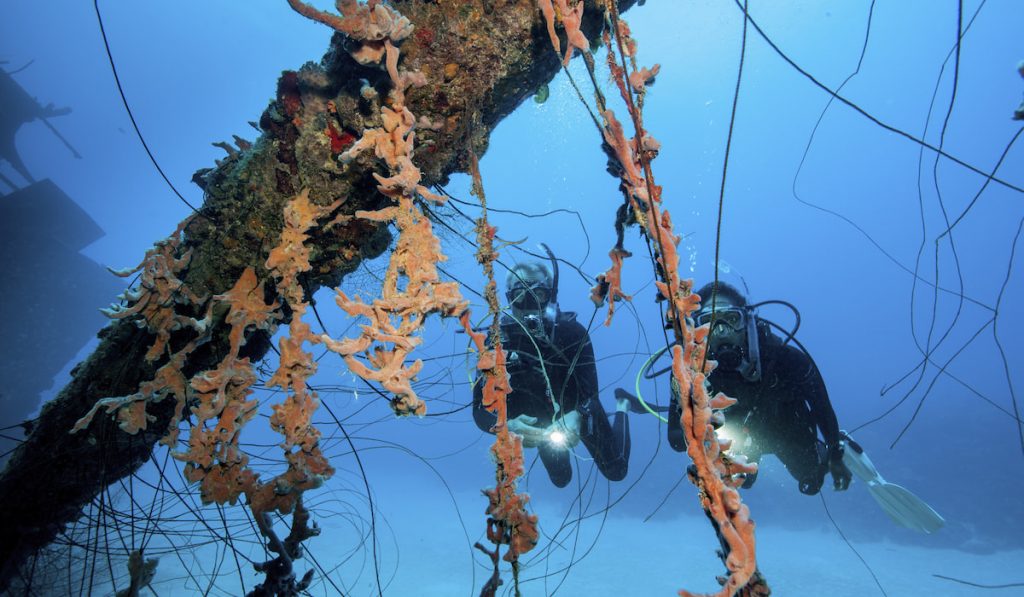
Just like the undergraduate course, internships give you the fieldwork experience necessary for most archaeological tasks. Internships can either be done during or after a bachelor’s degree program in places such as government agencies, museums, and archaeological organizations.
Earn a Master’s Degree
A bachelor’s degree will only get you to entry-level archaeology positions like excavation technicians, archaeological laboratory technicians, and research assistants. However, suppose you want better archaeological jobs. In that case, you need to upgrade your skillset to the master’s degree level, whereby you will be in an enabling environment to focus and advance your skill in one specific class of archaeology, say marine archaeology, for example.
Consider Pursuing a Doctorate
Suppose you wish to lead high-level archaeological research and projects or teach archaeology in college. In that case, you will need a doctorate in archaeology. The programs often take about two years and a few months for the field research and dissertation.
Seek Employment

This needs no mentioning. After all, the point of improving skillsets from the graduate to the doctorate levels is all about getting great shots at employment. However, you should find an archaeological job as soon as you are eligible for one to gain the much-needed experience for career advancement.
2. Study Earth Sciences
Earth sciences are a great plus for whoever finds marine archaeology attractive. That being said, most archaeologists, whether marine or land, start their careers with earth sciences like geology, oceanography, geophysics, as well as biology and chemistry. Such knowledge bases are instrumental in studying the sea beds and their sub-surfaces and helpful in locating possible archaeological sites.
Oceanography is vital in understanding the nature of the sea, together with the chemical and biological toll nature has had on the possible discoveries over time. Other aspects like how sediments formed or were deposited in fossils and how to brush them off and other skills in understanding ocean currents are all encompassed in the earth sciences programs and are all vital in marine archaeology.
3. Practice your Diving Skills
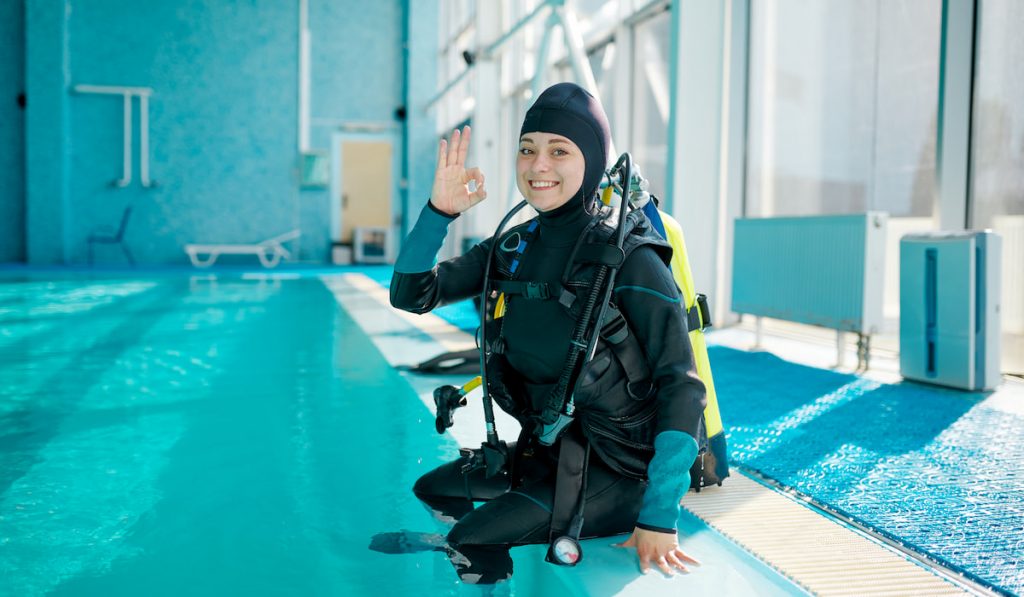
Diving is a basic necessity for a marine archaeologist. Most marine archaeology jobs will often require extensive underwater hands-on experience, and you need to be very skilled to handle the tasks. Therefore, professionals in the field should also be certified divers. Some archaeological degree programs will even offer additional courses on diving.
As a diver, you also need to understand your diving tools and appropriately employ each accordingly. Basic scuba diving, for example, can be resourceful in exploring shallow waters below 30 feet deep. However, deeper water bodies will require world-class diving skills in addition to many years of experience.
No matter how skilled you are, there are limits to scuba diving, and archaeologists need to learn how they are going to explore depths of thousands of feet.
4. Learn Navigation Skills
Maritime archaeologists need to be well-versed with the modern geographical information systems and any accompanying software and applications found on boats and ships to help them navigate. Provided all sea factors such as weather and the boat equipment are in perfect working condition, a marine archaeologist should be able to navigate to the exact position they need to explore.
If by any chance they lose track of the course, dead reckoning is a maritime navigation technique that can be employed by experts to manually work out specific location points with regard to past navigation records.
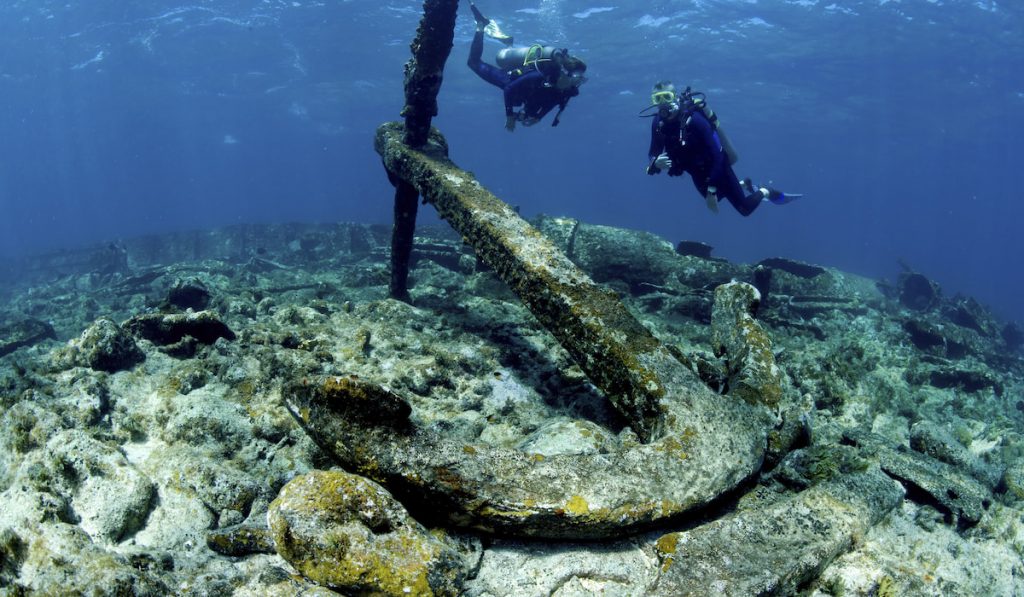
Salary and Advancement of Marine Archaeologists
Whether it is for an entry-level or an expert marine archaeologist, remuneration for each skill set greatly varies depending on the training, education level, experience, budget, and location for each exploration task and the explorer.
However, marine archaeology, to be specific, is costly for any employer because of the difficulty and obscurity of the field, as well as the scarcity of full-time practitioners. In this case, therefore, it is right to conclude that marine archaeology is a high-paying job within its upper ranks.
Job Outlook
Most marine archaeologists find employment in academics, private organizations, and state and local governments. However, full-time jobs are hard to come by, and individuals in the field are always advised to add to their resume by focusing more time and resources on underwater training, expanding their diving capabilities, specializing in certain aspects of the field, and even gaining core skills and experience in fields related to marine archaeology like the study of earth sciences.
Conclusion
Marine archaeology can be an intimidating field to pursue but as long as you have the passion, everything will work out perfectly. You only need to enrich yourself with the necessary skillset, from knowledge to physical diving skills. Many aspects of history lie beneath the Earth’s waters, and marine archaeologists are equipped to seek them out.
Resources
- https://www.indeed.com/career-advice/career-development/how-to-become-an-archaeologist
- https://work.chron.com/careers-dolphins-whales-7014.html
- https://careertrend.com/info-12058401-education-needed-become-marine-archaeologist.html
- https://targetstudy.com/professions/marine-archaeologist.html
- https://www.apguru.com/blog/what-is-nautical-archaeology
- https://www.jobmonkey.com/archaeology/underwater-jobs/
- https://shelbylanderson.com/archaeology/what-do-you-need-to-be-a-marine-archaeologist.html

